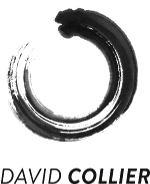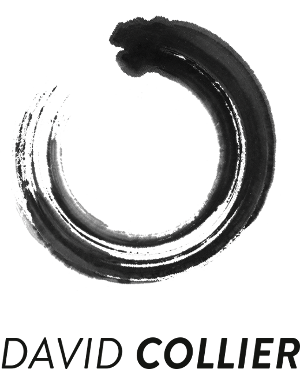music
Thom Conaty from _maker
This is an interview I did with Thom Conaty from _maker, a startup that is creating an online platform to help musicians learn about electronics. Full disclosure: I’m friends with Thom, already interested in this stuff, we did the same masters and even worked together on an art project last year. Bearing this possible bias in mind I think _maker have hit onto something really interesting. I got in touch with Thom to see what they’re up to.

Who are _maker?
_maker is myself and Colin Maher, the other director, and we’ve got Tom Canning, Stephanie McCabe and Philip Hayden helping out as well.
How did you get started?
I got interested in DIY electronics about 4 years ago when I got started circuit bending, which is taking apart old electronic noise making things and coaxing sounds out of them by poking around. There was no actual knowledge going on though, I was just poking around with circuit boards to see what I could find. Then the more I did that I became interested in what was actually going on? How do I control this a bit more? So then I got a few kits online and started building things and I got sucked into it. Read more
Brendan O’Driscoll from Soundwave
Earlier in the year I went to Music 3.0 a week long seminar on the future of the music industry. The week was a barrage of talks from interesting people doing interesting things and one of the talks that really struck me was given by Brendan O’Driscoll and Craig Watson. They were speaking about their company Soundwave, which is creating a way to find out, in real-time, what songs people are listening to. I got in touch with Brendan to find out more.
_
 How did Soundwave get started?
How did Soundwave get started?
I started Soundwave with my cousin Aidan Sliney in November of last year. We applied for Launch Pad 4 with a completely different idea in July and got some really good feedback that was very motivating. We sat down and said ʻwe didnʼt get in this time but weʼre going to learn from this, take all the lessons, all the pointers and the comments and apply it to a brand new idea.ʼ So we just started brainstorming ideas. Read more
PressPausePlay
I watched this documentary a while ago and it was really inspiring/terrifying look at being a creative in the digital age. It’s a really great watch with some interesting interviews with creatives from lots of different industries. Well worth a look!
In Your Own Time #1 – A mobile music app
 I’ve been working away over the last few months making an app for a masters, which is similar to the works I’ve been covering in my ongoing posts about Mobile Music. I’m really excited about the possibilities of creating music in that way and wanted to give it a go myself. I hadn’t been able to try most of the works I’ve been writing about so I was interested in to create a musical experience that I would be happy with as a listener and that I could make available to other people. Read more
I’ve been working away over the last few months making an app for a masters, which is similar to the works I’ve been covering in my ongoing posts about Mobile Music. I’m really excited about the possibilities of creating music in that way and wanted to give it a go myself. I hadn’t been able to try most of the works I’ve been writing about so I was interested in to create a musical experience that I would be happy with as a listener and that I could make available to other people. Read more
Music 3.0 – the future of the music industry
A fortnight ago I attended a series of talks called Music 3.0–a project to bring people together to imagine the future of the music industry and then to find ways to make it happen. I came across Music 3.0 on a tweet from a friend asking if anyone had heard about it. Information about the project was interesting but vague. You were coming to figure out the future of the music industry and see what could be done about it but there was nothing more specific than that. I was intrigued. The comparative lack of information only added to my interest in the week and I filled out the comprehensive application for and sent it off. I got a reply a week later. Success! I had been accepted.
The week centered around talks from loads of different speakers from a wide array of backgrounds talking about the three bywords of the week Innovation, Disruption and Technology. The energy for each of the speakers was immense. It was pretty much the hottest week in Ireland this year and we were all inside listening rapturously to these people as they poured out there stories. It was an amasing collection of people doing amasing things, most of them unconnected to the music industry but all embodying innovative disruption ideals. Read more
Pure Data Mini Conference
The second annual Pure Data Mini Conference took place a little over a week ago and I was lucky enough to have been invited back to present again this year. The conference took place over two days with six presentation the first day, a concert that night and two workshops the second day. I was speaking the first day about my ongoing work with Mobile Music, talking about the prototype app that I’ve put together and some of my ideas about composing for smartphone. All the audio programming for the app is created using the libpd library which allows Pd to be run on smartphones, which was my connection to the conference. Read more
Inception – Mobile Music #6
 Inception the app is a collaboration between Reality Jockey, the people behind RjDj, and Christopher Nolan and Hans Zimmer, who worked on the Inception film. The app provides the listener with dreams–augmented sonic experiences– featuring music from the soundtrack of the film. It comes with one dream and listeners are able to unlock others by using the app in different situations. There is a traveling dream for when you’re in a car or train or a Sunny dream if you’re using it in good weather or the Africa dream in case, you guessed it, you’re in Africa. Read more
Inception the app is a collaboration between Reality Jockey, the people behind RjDj, and Christopher Nolan and Hans Zimmer, who worked on the Inception film. The app provides the listener with dreams–augmented sonic experiences– featuring music from the soundtrack of the film. It comes with one dream and listeners are able to unlock others by using the app in different situations. There is a traveling dream for when you’re in a car or train or a Sunny dream if you’re using it in good weather or the Africa dream in case, you guessed it, you’re in Africa. Read more
Location33 – Mobile Music #3
 Location33 is a locative music work set in Culver City, California that explores the idea of an album in space and time. People listen to the album by walking through audio nodes throughout the city. A different song is available each day as the album evolves over the course of the week. As implicit in its title, Location33: Envisioning Post iPodalyptic Mobile Music, this work looks at the question “What’s next in personal stereo listening?”. It was created by William Carter and Leslie Liu at the University of Southern California. Read more
Location33 is a locative music work set in Culver City, California that explores the idea of an album in space and time. People listen to the album by walking through audio nodes throughout the city. A different song is available each day as the album evolves over the course of the week. As implicit in its title, Location33: Envisioning Post iPodalyptic Mobile Music, this work looks at the question “What’s next in personal stereo listening?”. It was created by William Carter and Leslie Liu at the University of Southern California. Read more
QBO – OSEC #4

The QBO is an open source controller designed and built by Guido Tamino. The project was put together in fulfilment of a master thesis and its design is centered on the idea of an open source project that can have many contributors. It plays into the open source ethos by using Pure Data as its software and the controller itself was built using an Arduino, webcam and cardboard. The controller is a novel take on a step sequencer. The idea being to move a electronic music performance away from sitting behind a laptop and towards a more interesting experience for the audience. Read more

